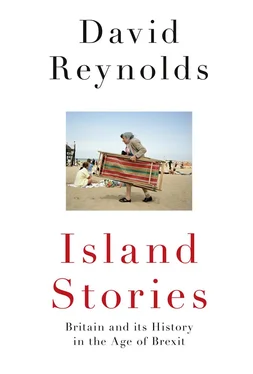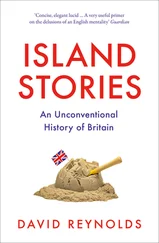Round two of the German challenge assumed a more menacing form for Britain because of the collapse of France in June 1940. Throughout the Great War the French, with increasing British support, had sustained a Western Front against Germany. But in four weeks Hitler achieved what the Kaiser’s best generals had failed to do in four years – knocking France out of the war and winning a continental empire. Hitler was now free to turn against the Soviet Union years earlier than expected. Germany’s amazing victories emboldened Italy and Japan to press their own bids for empire in North Africa and East Asia respectively – with British possessions as the main target.
Thanks to its own resources and those of the empire, Britain avoided defeat in 1940. There is no doubt that this was a moment of global significance. Had Britain surrendered, like France, or been knocked out the war, Hitler would have been free to devote all Germany’s manpower and resources on his war against the Soviet Union, while the United States would probably have pulled in its horns and concentrated on defending the Western Hemisphere. Instead, British defiance encouraged Roosevelt to extend material support and then enter the war. Britain became the essential base from which the Western Allies could eventually mount a cross-Channel assault to help liberate Europe.
So Britain’s 1940 really mattered. But whatever Churchill declaimed then about ‘victory at all costs’, overcoming Hitler’s Reich was beyond its own capabilities once there was no French army or Western Front in Europe, and when the Royal Navy faced challenges in the Mediterranean and the Pacific as well as in home waters. Britain therefore had no choice but to rely on new allies to win the victory – above all the USA and the USSR. By May 1945, after five years of total war, Hitler was dead and his Thousand-Year Reich lay in ruins, but he had brought down the old Europe with him. Such was the extent of Germany’s early success in 1940 that the Führer had, in effect, called the superpowers into existence to redress the balance of the Old World. After the D-Day landings in Normandy in June 1944, the United States dominated the campaign in Western Europe, while the Red Army’s long and bloody fightback from Stalingrad to Berlin left it in control of most of Eastern Europe. By the time the Germans surrendered, the armed forces of the USA and USSR each numbered between 11 and 12 million men, more than double the British figure.
Had the world reverted to the pattern of the previous post-war era after 1918, with American and Russian withdrawal from Europe, the power shift would not have been so pronounced. But out of this war there developed a bitter Soviet–American rivalry, which not only divided Germany and Europe into two military blocs but also became truly global and fiercely ideological. Although Britain was still a major power in the immediate post-war period – third in military and industrial terms around 1950, thanks in part to the total defeat of Germany and Japan – it could not match the two superpowers, despite maintaining until 1960 the policy of peacetime conscription. In 1953, Britain’s peak post-war year, its armed forces totalled 900,000 compared with 3.5 million for the USA and 4.75 million in the case of the USSR. [54] Конец ознакомительного фрагмента. Текст предоставлен ООО «ЛитРес». Прочитайте эту книгу целиком, купив полную легальную версию на ЛитРес. Безопасно оплатить книгу можно банковской картой Visa, MasterCard, Maestro, со счета мобильного телефона, с платежного терминала, в салоне МТС или Связной, через PayPal, WebMoney, Яндекс.Деньги, QIWI Кошелек, бонусными картами или другим удобным Вам способом.
Nor, in the age of nuclear weapons and inter-continental missiles, could it hope to keep up in the Cold War arms race with the Big Two. Since the 1960s, Britain’s continued existence as a nuclear power has depended on its ‘special relationship’ with the United States.
This does not mean that Britain is no longer of any military consequence. It remains the only European member of the Western Alliance, apart from France, to maintain a capacity for power-projection outside the NATO area. But its days as a major global presence are over. As with the economic story, others have surpassed its precocious early lead – reducing Britain to the position that one might expect for a state of its size, population and resources. In power, as in wealth, what is historically striking was ‘rise’, not ‘fall’.
Empire, power and greatness
Britain would never have risen so high but for the ‘multiplier’ effect of empire. It was the empire which made Britain great. At the start of the twentieth century Britain and Ireland had only 42 million people, whereas the population of the USA was 76 million and of Tsarist Russia 133 million. When the inhabitants of Britain’s overseas territories were included, however, the arithmetic looked different. At its peak after the Great War, the British Empire covered nearly a quarter of the earth’s land surface and encompassed a similar proportion of its population, over 500 million in all. France accounted for only 9 per cent of the earth’s land surface and 108 million of its people. [55] Конец ознакомительного фрагмента. Текст предоставлен ООО «ЛитРес». Прочитайте эту книгу целиком, купив полную легальную версию на ЛитРес. Безопасно оплатить книгу можно банковской картой Visa, MasterCard, Maestro, со счета мобильного телефона, с платежного терминала, в салоне МТС или Связной, через PayPal, WebMoney, Яндекс.Деньги, QIWI Кошелек, бонусными картами или другим удобным Вам способом.
At times of crisis the empire could serve as a vast resource of material and manpower. During the Great War the British government mobilised 6.7 million men from Britain and Ireland, but 3 million more came from the empire – nearly half of these from India. [56] Конец ознакомительного фрагмента. Текст предоставлен ООО «ЛитРес». Прочитайте эту книгу целиком, купив полную легальную версию на ЛитРес. Безопасно оплатить книгу можно банковской картой Visa, MasterCard, Maestro, со счета мобильного телефона, с платежного терминала, в салоне МТС или Связной, через PayPal, WebMoney, Яндекс.Деньги, QIWI Кошелек, бонусными картами или другим удобным Вам способом.
In 1939–45 the imperial contribution was yet more pronounced: while the UK mobilised 5.9 million, the so-called ‘white dominions’ – Canada, Australia, New Zealand and South Africa – raised nearly 2.5 million and India over 2 million. [57] Конец ознакомительного фрагмента. Текст предоставлен ООО «ЛитРес». Прочитайте эту книгу целиком, купив полную легальную версию на ЛитРес. Безопасно оплатить книгу можно банковской картой Visa, MasterCard, Maestro, со счета мобильного телефона, с платежного терминала, в салоне МТС или Связной, через PayPal, WebMoney, Яндекс.Деньги, QIWI Кошелек, бонусными картами или другим удобным Вам способом.
Читать дальше












